I must start this week by endorsing the sentiments expressed in the allotment story published in the P&J a couple of weeks ago.
I’m sure it must have also been a planned editorial decision to publish Derek Uchman’s piece on the life-changing effect of having an allotment in the same edition of the newspaper.
He says it all, becoming an allotmenteer can be life-changing.
I have just two thoughts to add and one is negative.
There are millions of people to be fed on a daily basis and only a very few have an allotment.
To make my point, I must add in the families who have gardens big enough to keep the family supplied with fresh fruit and vegetables.
In my view, there is no point in belittling in derogatory terms, the commercial growers whose living is to provide wholesome fruit and vegetables for the majority.
Feeding millions
Yes, of course, it is preferable to pick a lettuce from the plot, to add to the salad an hour later and of course, it tastes fresher but please don’t denigrate the superb quality and range of fruit and veg produced by our hard-working growers on a daily basis all year round to feed those millions.
Having served part of that industry for a lot of years I feel qualified to make that comment.
Looking for a parallel scenario the only one I can think of is owning a car to take you wherever you wish, in your own time, compared with the millions who have to wait for a bus/train which will dictate time and place to you.
Wholesome fruit and vegetables are an essential part of our diet, that’s the vital point.
On a more positive note, let me focus on the privilege of having an allotment.
The friendships and companionship which develop within the allotment scene, is priceless.
On one allotment I visited a year or two ago, I chatted with an elderly lady planting a few bits and pieces in a raised bed.
She and her husband were keen gardeners and like many others, it was also part of their social life.
Sadly, her husband died and this is the crux of my story, she couldn’t manage the allotment on her own nor did she need one.
No worries, the chums were ‘on the ball’.
They created that raised bed so that she could grow a few bits and pieces BUT, more to the point, she would still have reason to come amongst them regularly thus helping her to manage her new status amongst friends.
That’s allotment gardening for you, it’s not all about who can grow the biggest onions.
Garden pests
Back to business and a word or two about tackling garden pests. Such is the emphasis nowadays on organic production of fruit and vegetables that we sometimes forget it is still legitimate to use fire brigade measures to control garden pests.
Though the options are fewer than ever we still have some ‘approved products’ to fall back on – do your homework.
In the ornamental sector if we are to cultivate our decorative plants successfully and that means keeping them clean and healthy then we have to tackle the problems there too, caused by slugs, earwigs, vine weevil, aphids, scale insects, red spider mite, as well as diseases like mildew and black spot.
So long as we use the materials and techniques that are available, legitimately, with a mind for the plant-friendly wildlife in the garden environment, we should have a clear conscience but we must try to adhere to the ‘best practice’ codes recommended by manufacturers and environmental agencies.
The acute difficulties arise when we come to consider edible crops where the secret of success once again is to study the problems, understand the life cycle of the pest/disease and take appropriate timely action.
Do the homework on potential cures and treatments, READ the small print on the labels.
Old remedies
Or maybe even turn the clock back to some of the remedies of the past.
Indoors and out, the leaves of a wide range of plants are eaten by caterpillars and adult insects.
Answer: Use traps made from the cardboard cylinder centres of toilet roll.
One cylinder is squeezed so that it can be pushed inside another. Hanging up on the plants, they provide wonderful sites for the beasties to shelter in as they digest bits of our lovely plants.
Earwigs and vine weevil adults enjoy these traps but they must be emptied regularly.
Outdoors, the little flower pot, full of straw or dry grass, up-ended and pushed onto the top of dahlia stakes will attract beasties but they must be re-set daily – first thing in the morning before breakfast.
To deal with caterpillars in the vegetable garden, how about using onion juice?
Grate one onion, mix with water in a spray bottle and spray the relevant vegetable patch liberally.
I guess that many of these old remedies are still being used in allotments across the land, the techniques being handed down through the years in countless chats, during the stop for a ‘breather and a blether’.
Flower Show
Finally, the Royal Horticultural Society Annual Flower Show is being held in Duthie Park on Saturday and Sunday, August 27 and 28.
I will have the honour of presenting the trophies beginning at 2.30pm on Sunday.
For further details, contact the secretary Hazel Main on hmain@tinyworld.co.uk.
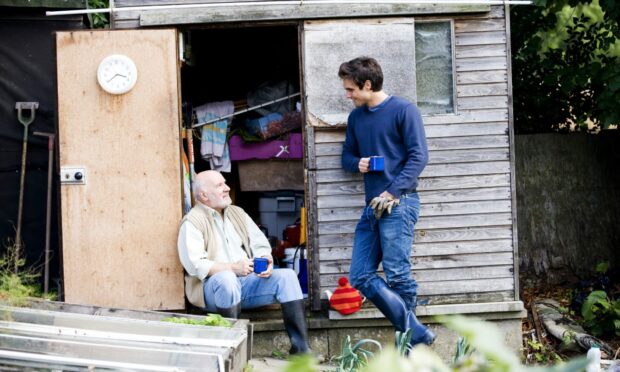
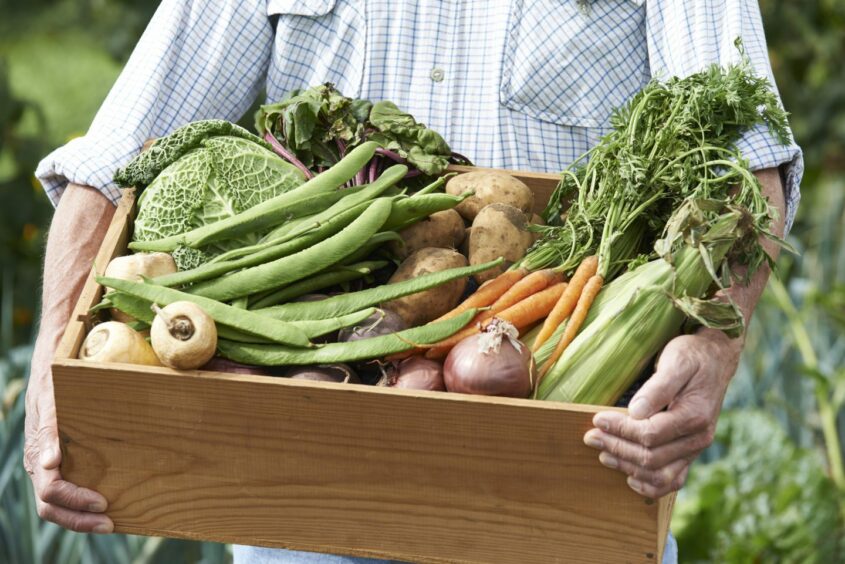
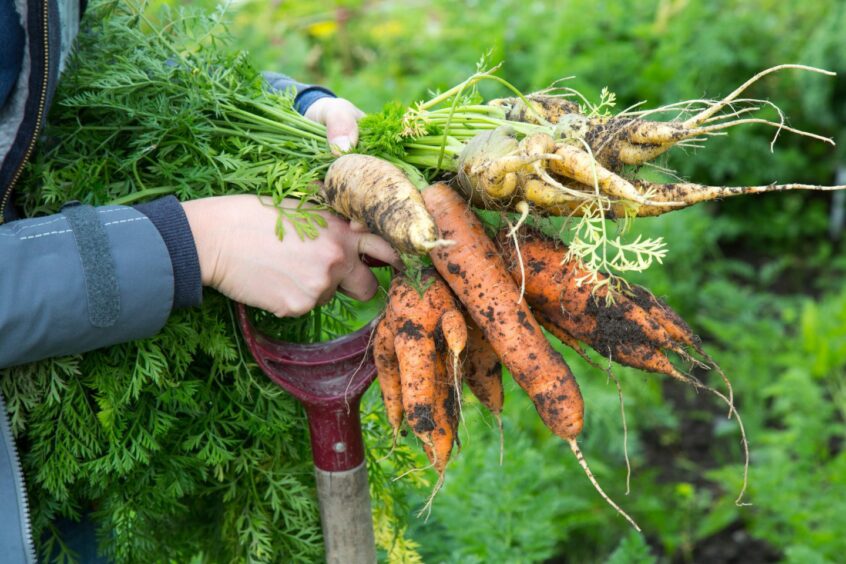
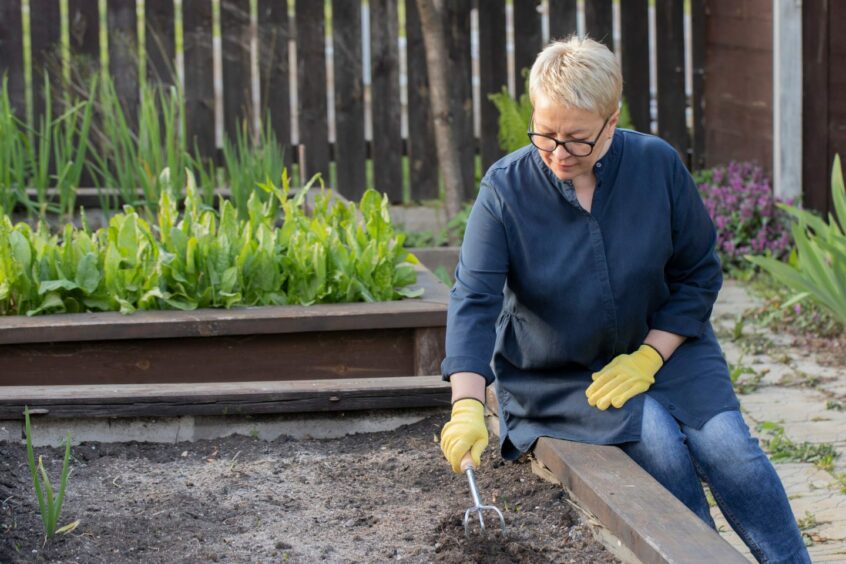

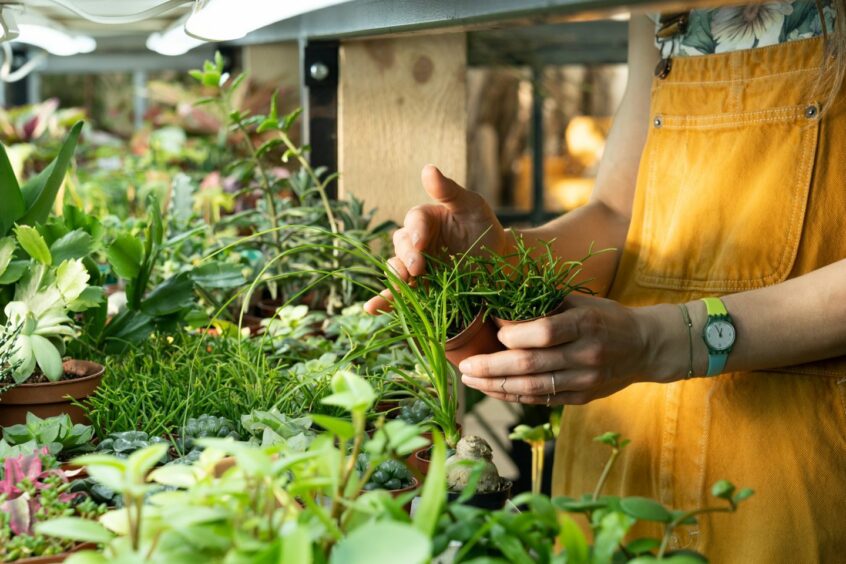
Conversation